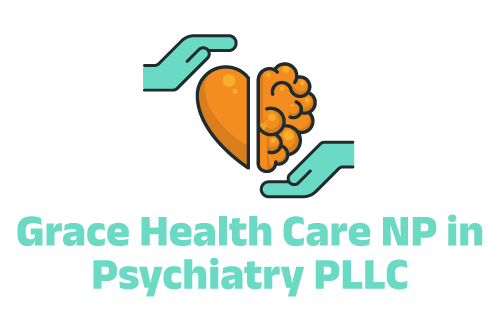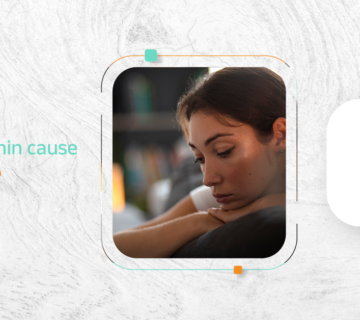Antidepressants help people struggling with mental health. They ease difficulties like depression, anxiety, or mood changes.
They can not only reduce these troubles but also help with sleep disorders. One issue they might cause is Rem sleep disorder (RBD).
Let’s examine what causes rem sleep behavior disorder, what exactly it is, and how to handle it.
Sleep disorders refer to issues with the quantity, timing, and quality of sleep, which can impact general well-being and standard of living.
If you are dealing with this problem and need a mental health expert, consider Grace Health Care for treatment.
What Is REM Sleep Behavior Disorder?
It’s a sleep disorder often referred to as RBD. It makes a person move and shout in their sleep, usually during intense dreams.
Typically, during REM sleep, the body remains still despite dream activity because the brain sends signals to prevent movement.
However, for people with RBD, this mechanism fails, allowing them to act out their dreams, which can sometimes be dangerous.
What Causes Rem Sleep Behavior Disorder?
REM Sleep Behavior Disorder (RBD) can be challenging to describe the exact causes, but it often connections to issues like Parkinson’s, multisystem atrophy, and Alzheimer’s dementia disease.
Approximately half of RBD people don’t know drugs that cause rem sleep behavior disorder. For the rest, it might relate to alcohol withdrawal, stopping sedative medications like imipramine or fluoxetine.
Research says 38% of RBD patients end up with Parkinson’s in around a few years. Additionally, 69% of Parkinson’s or multisystem atrophy patients also conflict with RBD. But remember, RBD doesn’t always lead to Parkinson’s.
The Link Between Antidepressants and Rem Sleep Behavior Disorder
Antidepressants function by changing the chemical balance of the brain to enhance mood and lessen feelings of anxiety or depression. Certain antidepressants influence neurotransmitters that are key to developing sleep, like serotonin and norepinephrine.
While this helps manage emotions, it may change the normal sleep cycle, particularly REM sleep. A variety of antidepressants have been linked to the onset or worsening of REM Sleep Behavior Disorder. These include:
-
Selective Serotonin Reuptake Inhibitors (SSRIs)
Prozac, Zoloft, and Paxil are some examples of SSRIs that doctors often prescribe. They help raise serotonin levels in our brain, brightening our mood. But there’s a downside, too. SSRIs may reduce our REM sleep, leading some people to have REM Sleep Disorder.
-
Serotonin Norepinephrine Reuptake Inhibitors (SNRIs)
Effexor and Cymbalta are common ones. Like SSRIs, SNRIs can affect serotonin and norepinephrine in our body. It can cause less REM sleep again and possible RBD symptoms.
-
Tricyclic Antidepressants (TCAs)
Think of them as older, like amitriptyline and imipramine. They’re suitable for tackling depression and anxiety but can mess with our REM sleep. The fallout? Greater risk of REM Sleep Behavior Disorder.
-
Monoamine Oxidase Inhibitors (MAOIs)
MAOIs, like phenelzine (Nardil), is one example but is not prescribed much. The disadvantage is that it can disturb our sleep. For some, REM Sleep Disorders might follow due to upset sleep cycles.
Why Does This Happen?
Antidepressants change how neurotransmitters, especially serotonin and norepinephrine, work in the brain. These small chemicals are essential in mood regulation and impact sleep patterns.
When antidepressants shift up these chemicals, REM sleep might get messed up. This mess can bring on physical signs of REM Sleep Disorder.
Rem Sleep Behavior Disorder Treatment
If you are experiencing symptoms of REM Sleep Behavior Disorder while taking antidepressants, it’s essential to consult your healthcare provider. They may recommend the following options:
-
Medication Adjustment
Changing Your Meds Sometimes, a doctor may choose to lower the dose of your antidepressant or switch you to another one that isn’t as likely to mess with your sleep. Changing from an SSRI or SNRI to a different kind of antidepressant often helps people with RBD symptoms.
-
Sleep Medications
Your doctor might choose to add extra drugs to help with your RBD. They may choose clonazepam (a type of benzodiazepine) or melatonin to help your sleep pattern better.
-
Lifestyle Adjustments
Adjusting your habits can also help with REM Sleep Disorder. It’s vital to ensure your sleep area is safe because acting out dreams might cause injuries.
Removing sharp objects and setting some padding around the bed lessen potential danger. Better sleep hygiene – sticking to a solid sleep schedule and forming a soothing pre-bedtime routine – could ease symptoms too.
-
Monitoring and Long-Term Care
For some people, the disorder may persist, requiring ongoing care. Regular checkups with your health professional, keeping an eye on symptoms, and making any needed changes to your medications or daily routine checkups will help you handle this condition over time.
Wrapping Up
What antidepressants cause rem sleep disorder?
Antidepressants are a great help in tackling conditions like depression and anxiety. But they can have side effects. One potentially concerning person is REM Sleep Behavior Disorder.
Important to talk with your healthcare professional. They’ll correctly assess everything. To find a plan that helps you with your anxiety or depression but doesn’t spoil your sleep pattern.
FAQs
-
What are the symptoms of REM Sleep Behavior Disorder (RBD)?
Those with RBD often act out dreams and may make noises or move violently in their sleep. Sometimes, they might hurt themselves or the person they share a bed with.
-
How can I manage REM Sleep Behavior Disorder if I’m on antidepressants?
Reach out to your doctor. They might tweak your medication or suggest different ways to manage RBD. It could even be changes to your bedtime routine.
-
Is RBD related to any long-term conditions?
It could be. RBD could signal Parkinson’s disease, dementia with Lewy bodies, and multisystem atrophy. Sometimes, RBD shows up before these health problems.
-
How is REM Sleep Behavior Disorder treated?
You might get prescribed medication like clonazepam or melatonin. Setting up precautions for nighttime safety is also important.
-
Does everyone with RBD develop Parkinson’s disease?
Not necessarily. Still, research suggests RBD can lead to some kind of neurodegenerative disease in the long run. So, keeping an eye on signs is beneficial.







No comment